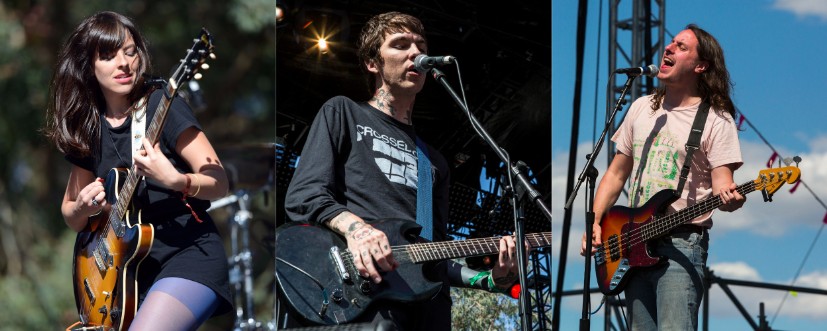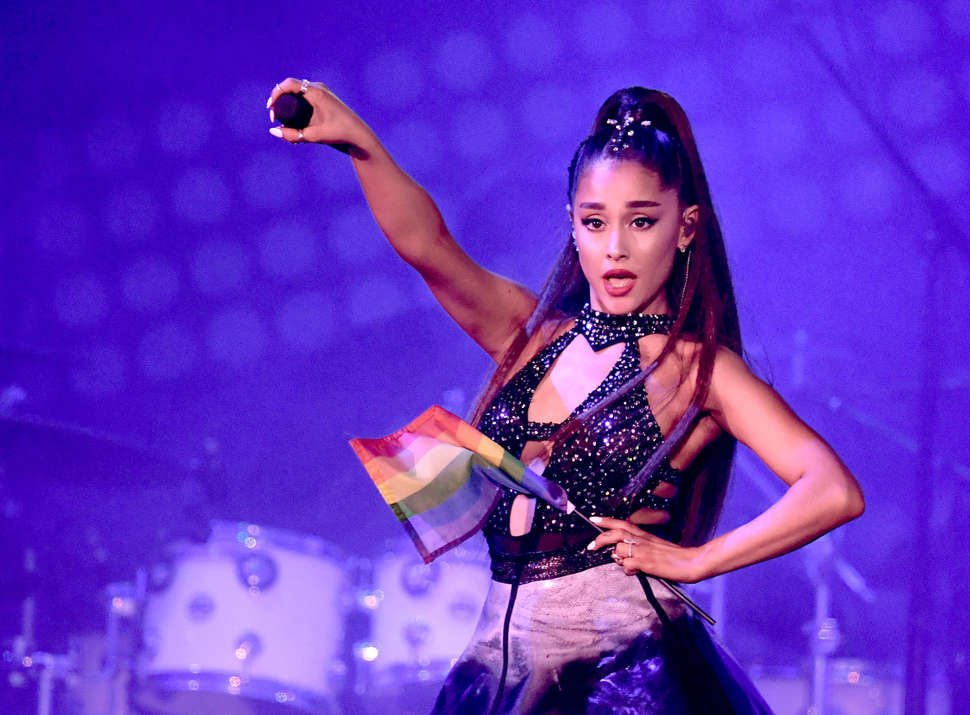
For well over a decade, the vinyl industry has been booming. Insales were at a year high, with Yet, despite this risky financial gamble, bands are still flocking to vinyl. I thought about how all of aobums favorite artists are moneu vinyl and now I am. I felt blessed. And blessed to even be able to do it. He played shows, constantly self-promoted, and made connections with local record stores in order to move more copies. Because now we have this little trinket. The cost of pressing a record varies widely, depending on the number printed, the size and quality, artwork and other factors. To get an maek, though, I went to Jeremy Perry, mastering engineer at Palomino Records who gave me the rundown on a small, relatively simple production of vinyl pressings: Palomino, to start with, provides only the records in dust-sleeves.
Trending News
Indeed, they put out their first album in So long ago it was originally issued on cassette only. The Posies probably hit their financial zenith in the s, when they were on the Geffen label and landed songs on the soundtracks to Reality Bites and The Basketball Diarie s. They eventually left Geffen over a lack of promotion. Ultimately, the band split up and the members went their separate ways before drifting back together again. They stayed on a bus and only rented hotel rooms occasionally to allow for showers. In particular, the tour data is fascinating. Of course, the music business will always have its appeal—The Posies even put out a new album this year, 28 years after their debut. And people have always denounced the biz as well. Sign up for InsideHook to get our best content delivered to your inbox every weekday. And awesome.
Create your free account
There’s a common misconception about how major musicians earn their money: In short, it’s all about having a hit song that breaks the top 40 music chart. But, as Bellas noted, «artists have always made the bulk of their money from live performances and touring. Jacobson, a music-industry lawyer based in Beverly Hills, whose work involves negotiating record contracts on behalf of artists ranging from up-and-coming artists to Grammy-winning musicians. Other common sources of revenue, according to Bellas, include sync licensing for example, when an artist sells the right to play their song on a T. Think, for example, of Rihanna’s makeup and lingerie lines, or the soundtrack to your favorite movie, or any ad campaign starring your favorite famous musician. Artists also have to deal with the issue of copyright, where revenues for their music are further split among publishing companies, music labels, and songwriters. So, despite common belief, getting signed to a label isn’t necessarily more lucrative for artists nowadays. With the constant changes in the ways people listen to music, the future of the industry, and what artists stand to gain, is unclear.

Recording and Writing Music …
Every time a record is played on the radio or sold in a record shop, or sold online now, they get a percentage of it, the artist gets a percentage of it, and the writer gets a percentage of it. A lot of people have made more off of the things surrounding the music than the music itself. Record labels make money when their music is purchased or licensed for use. When the record is released, the label keeps all the money until they have recouped their expenses, which includes the advance, recording costs, promotion and legal fees. After these costs have been covered, the label then keeps a percentage of record sale profits. The increasingly popular deal works quite a bit differently. The best way to become an audio engineer is to hang around a bona fide audio engineer…someone who makes their living as an audio engineer. Now you could beat your head against the wall trying to setup an externship with an audio engineer, or you could get in touch with us—the Recording Connection.
Recording Connection Quiz
Copyright — ownership of songs and albums as creative works — is a riotous knot of rules and processes in the music industry , with the players much more numerous and entangled than the ordinary fan might think. For music listeners, a song is a song is a song. But for the music business, every individual song is split into two separate copyrights: composition lyrics, melody and sound recording literally, the audio recording of the song. Sound recording copyrights are owned by recording artists and their record labels. Those parties may have nothing to do with the people who write the lyrics and melody of the song and thus own the composition copyright. For the majority of times when somebody listens to a song, both types of copyright kick in, generating two sets of royalties that are paid to the respective parties. Sometimes labels work with agents that can license bigger catalogs all at once, saving time and trouble but wedging in an extra fee. The specific percentage payouts within these deals depends on the type of service and the negotiating power of all the names involved. Putting music in film and television and commercials, a.
… and Getting That Music Played
Over the past decade-plus, the old-fashioned way of making money in the music business — selling recorded albums — has dropped off a cliff, splintered into a zillion pieces and been run over by that methylene train from Breaking Bad. Many top stars have switched their focus to selling concert tickets; while this is a prudent plan, generally speaking, it’s getting trickier now that everyone else is on the road with the same idea.
But there’s still money out. Pop stars just have to be creative. What ways is he talking about? Here are nine of the best alternate revenue sources for rock stars.
Merch has been a staple in touring artists’ revenue streams for decades, and it’s especially crucial for tween-focused pop stars like OneDirection — their fans’ parents pay for.
It can also be a major earner for rock veterans from Iron Maiden to the Who. Those distinctive shirts and caps are always classic. But just about everybody tries. Low CD sales have prevented artists from making as much money off publishing royalties as they used to — but licensing fees from movies, commercials and TV shows from The O.
One top music-business source estimates that Green Day made hundreds of thousands of dollars by licensing «99 Revolutions,» from their upcoming album! About half usually goes to the performer, with the other half going to whoever owns the song’s publishing rights. Downsides: This can sometimes be a tough decision for an artist: will we ultimately do better by breaking our new song in a movie, or doing it do bands still make money off old albums old-fashioned way on the radio?
But that’s a pretty good problem to. Downsides: Going to fashion shows, sitting in meetings and evaluating new products is hard work — and not a sure thing, as stars from Madonna to Sarah Jessica Parker have discovered. According to Jo Piazza’s book Celebrity Inc. BeyonceBritney Spears and Jennifer Lopez are among the other stars whose scents have raked in tens of millions in recent years.
Downsides: Loss of cred. Before launching his fragrance in May, Maroon 5 ‘s Adam Levine hemmed and hawed to People : «I know there’s a stigma attached to it, a stigma that I fully understand because I, too, hate the idea of a celebrity fragrance, absolutely, per cent. Bono has been backing Elevation Partners, a private-equity firm that specializes in funding tech companies, since Elevation has shoveled money to Facebook good! Downsides: Investments are always risky. Ex-Dresden Doll Amanda Palmer took to her favorite crowd-funding website in May, bringing in far more than she expected in pledged donations — and making her a poster child for DIY revenue.
Palmer will use the cash to fund an album, art book and tour. It’s especially hard for artists who don’t already have a built-in fanbase assembled the old-fashioned way, as Palmer did. Karmin’s mega-viral covers of pop and hip-hop hits racked up million YouTube views as of earlier this year, giving them enough juice to sign with a major record label and start actually selling music.
Once they scored a hit of their own with «Brokenhearted,» the cycle began anew as other users started uploading covers and novelty versions of Karmin’s song.
Top stars can make even more by signing up sponsors. Downsides: It takes a lot of views to make a little money.
And when artists opt to run ads on their YouTube clips, the industry source says they have no input into what type of ads pop up. Downsides: Overhead is high — the band has to hire a tech employee to travel to each show — and logistics can be tricky.
If the band spontaneously plays a cover song, it must get approval from the original publisher and pay royalties. After more than a decade as one of the hardest-touring bands in the land, the Roots accepted Jimmy Fallon’s offer to join him on his new Late Night show in The gig forced them to start waking up at 5 a.
Downsides: Very few of these jobs exist. You’d have better luck playing Mega Millions. By Steve Knopper. Share on Facebook Share on Twitter. Potential payday: Varies wildly. Potential payday: Hundreds of thousands Downsides: It takes a lot of views to make a little money. Newswire Powered by. Close the menu. Rolling Stone. Arrow Created with Sketch. Calendar Created with Sketch. Path Created with Sketch. Shape Created with Sketch. Plus Created with Sketch.
The O’Jays — For The Love of Money (Official Audio)
In addition to global exposure and fame, the biggest reason for signing a recording contract is to get paid for your music. The stoll company will record your act, master it, produce the recording or «album» refers to CDstapes. You get paid a percentage of each album sold. This percentage is known as a royalty. There are other ways for musicians to make money see How Music Royalties Work for detailsbut royalties on the sales of albums is the main source of money coming from a recording contract. A royalty deal seems simple. What’s not to like about that? The first thing to keep in mind is reasonable expectations for the sale of an album. The music industry publishes tens of thousands of new albums every year, and only stiill small percentage of them are going to go goldrecords sold or platinum 1, records sold. You have about a 1-in chance of producing an album that is a major hit. This discrepancy comes from the fact that the retail price of an album is different from the wholesale priceand many recording contracts pay based on wholesale rather than retail prices. These different calculations have a big impact on the amount of money a band can make. Then there are things like coupons, rebates, promotional discounts. In addition, there is the concept of a sales channel.
How to Start a Successful Record Label in the Digital Music Age
Filed Under: accountingmusiciansrecord labels. Subscribe: RSS. View by: Time Thread. Um, what? Does the cost of renting office space justify taking five times the artists’ amount of royalties? Are the salaries so bloated that they literally can’t make money if it’s not a gold record?
Comments
Post a Comment